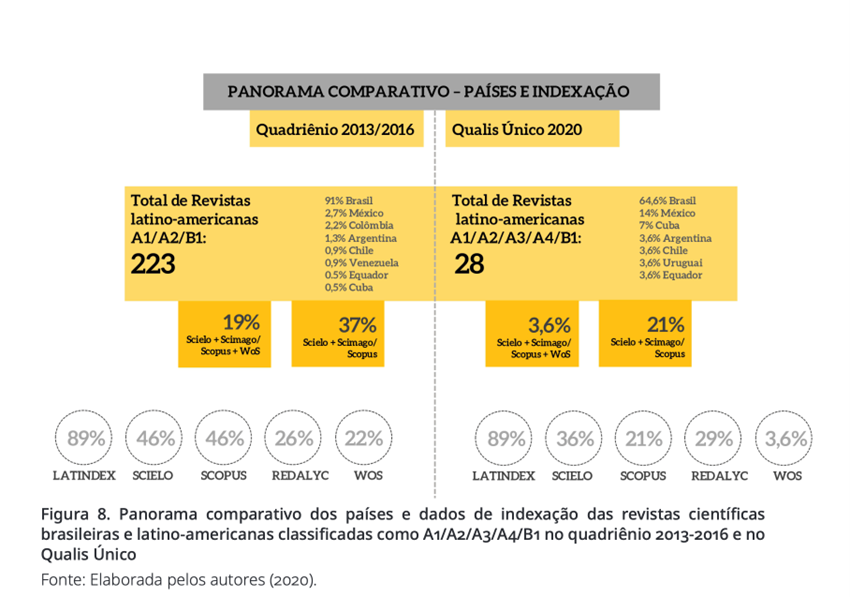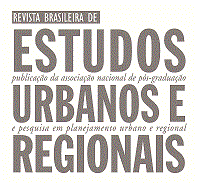Fernanda Cantarim, Substitute Professor, Federal University of Paraná (UFPR), Curitiba, PR, Brazil.
Manoela Massuchetto Jazar, Post-doctoral student, Pontifical Catholic University of Paraná (PUC-PR), Curitiba, PR, Brazil.
Rodrigo Firmino, Research Professor in the Postgraduate Program in Urban Management, Pontifical Catholic University of Paraná (PUC-PR), Curitiba, PR, Brazil.
There is an unequal and biased process in the global scenario of scientific production, resulting from the search for standardization of international impact metrics; recent changes in how Qualis/CAPES evaluates journals from Brazil and Latin America indicates structural changes in how these journals fit into a larger context. Emphasis is given to alternative databases and networks, with the valorization of local scientific production. These conclusions were observed in the article Scientific colonialism and Brazilian and Latin-American journals: challenges in the international dissemination of urban and regional studies, published in the journal Revista Brasileira de Estudos Urbanos e Regionais, RBEUR (vol. 27, 2025).
This article investigates recent changes in the panorama of Brazilian and Latin American journals in Urban and Regional Planning, comparing the journals, metrics, and classifications of Qualis 2013-2016 and Qualis Único (2020). This is a study conducted by researchers from the Postgraduate Program in Urban Management at the Pontifical Catholic University of Paraná (PUC-PR), Fernanda Cantarim, Rodrigo Firmino, and Manoela Massuchetto Jazar.

Image: The authors.
The study assesses the transition period of the evaluation criteria of CAPES’ (Brazilian Federal Agency for Support and Evaluation of Graduate Education) Qualis classification, in 2020. Based on the analysis of the scenarios before and after the changes, it questions how the universalization of science, its metrics, and languages are shaped by hegemonic standards distant from local specificities. Paths are also raised for strengthening local knowledge networks, essential to ensure dialogues within the Latin American context (or even the global south). The methodology combines bibliometric analysis with a critical look at the coloniality of knowledge to interpret the power relations involved in the dissemination of knowledge.
The authors used Qualis data collected directly from the Sucupira Platform, while indexing information and impact metrics were obtained from databases such as Scimago, SciELO, Scopus, Web of Science (WoS), Redalyc and Latindex. Comparisons using images and graphs help to visualize the data between the 2013/2016 four-year classifications and Qualis Único. The results indicate that, in addition to directly affecting urban and regional journals, international standardization can compromise epistemic diversity in science. The article advocates the valorization of open and publicly controlled platforms, such as SciELO and Redalyc, and proposes the strengthening of counter-hegemonic strategies that allow international insertion without losing local relevance.
The research is part of a relevant discussion about the context of Urban Studies in Brazil, Latin America and the Global South, given the need for critical thinking about the ways in which the universalization of science affects the production and circulation of works in the region.
To read the article, access
CANTARIM, F., FIRMINO, R. and JAZAR, M.M. Colonialismo científico e periódicos brasileiros e latino-americanos: desafios na difusão internacional dos estudos urbanos e regionais. Rev. Bras. Estud. Urbanos Reg. [online]. 2025, vol. 27, e202507 [viewed 23 April 2025]. https://doi.org/10.22296/2317-1529.rbeur.202507. Available from: https://www.scielo.br/j/rbeur/a/zkhm83jYqG6MW8XtGVX8Hpc/
External links
Revista Brasileira de Estudos Urbanos e Regionais – RBEUR
Revista Brasileira de Estudos Urbanos e Regionais – Site
Revista Brasileira de Estudos Urbanos e Regionais – Social Media: Instagram
Como citar este post [ISO 690/2010]:













Recent Comments